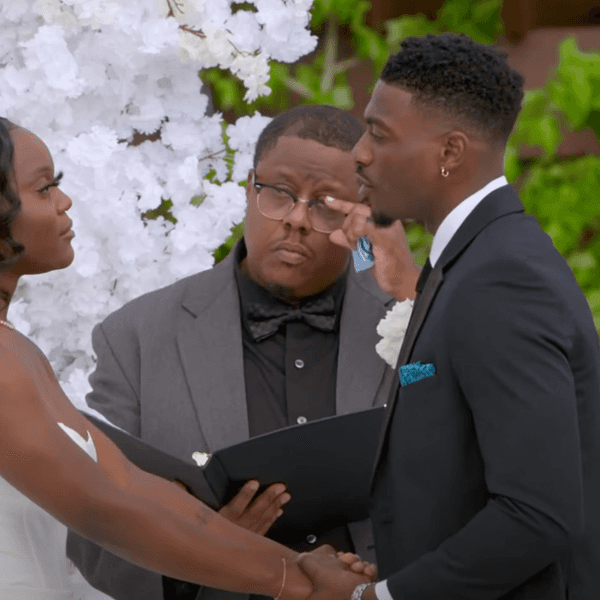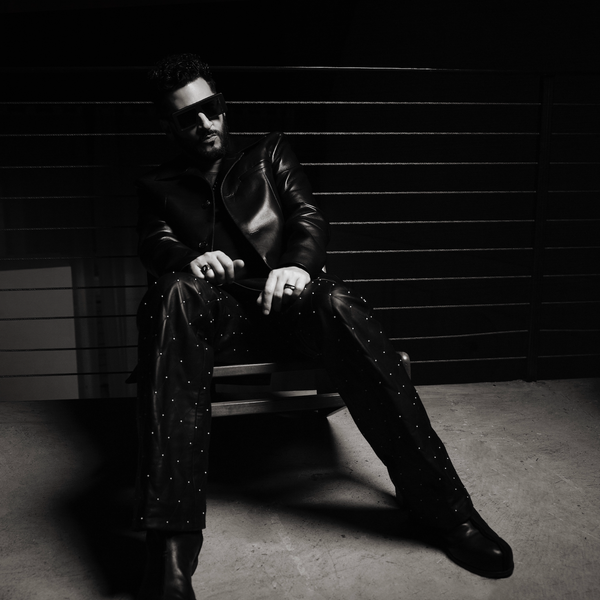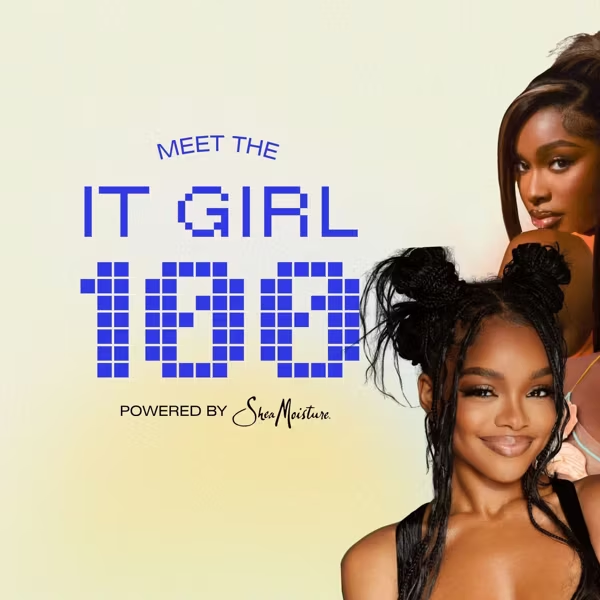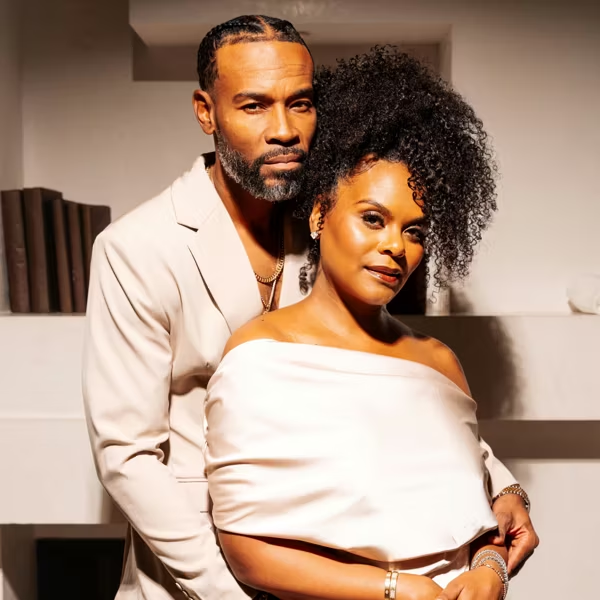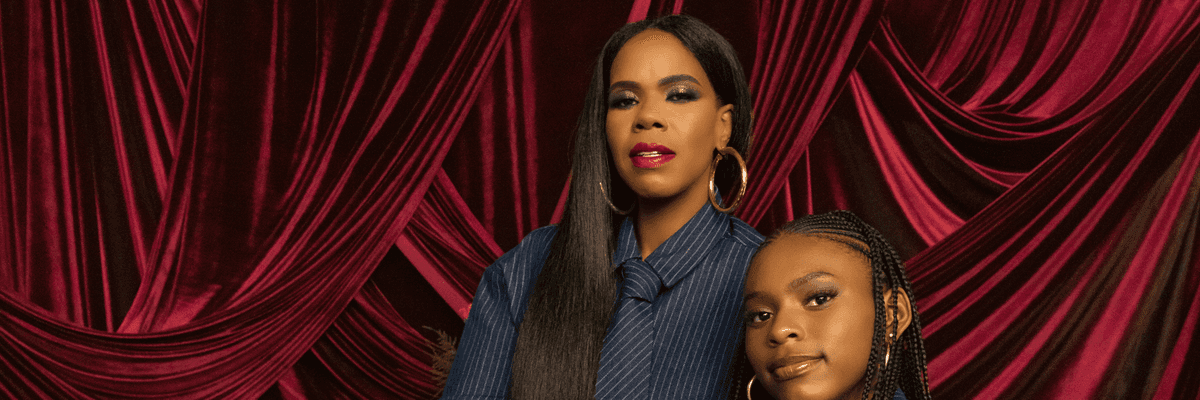This season of Love Is Blind was undeniably a rollercoaster ride of emotions. From intricate love triangles to deeply rooted attachment issues, it offered viewers a compelling glimpse into the complexities of modern relationships.
Yet, amidst the drama and romance, I think it serves as a poignant reminder of how we can possess a keen awareness of our relationship patterns; we can even find ourselves in therapy for years yet find ourselves repeatedly entangled in the same destructive cycles. Without the necessary tools and strategies to dismantle old habits and embrace healthier alternatives, we are destined to remain ensnared in a cycle of repetition and stagnation.
Amber Desiree “AD” Smith was left shocked and confused at the altar when her fiancé, Clay Gravesande, ultimately decided not to go through with the wedding ceremony. His actions throughout the season consistently indicated hesitancy towards commitment despite initially expressing readiness for a long-term relationship when he and AD first connected in the pods.
Throughout the season, Clay's journey revealed layers of immaturity stemming from childhood wounds caused by generational trauma, along with a clear unpreparedness for a healthy relationship. His relationship with AD began on shaky ground when he hesitated to commit without knowing her appearance first.
@netflix.reality.clips Clay and AD in the pods #clayloveisblind #ADloveisblind #loveisblindseason6 #libs6 #dating show
Despite AD's initial surprise, she decided to give Clay a chance, continuing their relationship. However, this initial compromise led to recurring issues, such as Clay's insensitive comments about potential weight gain and his insistence that AD join a gym if she were to gain weight in the future.
Despite these challenges, Clay and AD left the pods engaged with a road ahead of them of ongoing struggles in the real world. Clay and AD's relationship seemed shallow, mainly revolving around superficial interactions reminiscent of casual social media banter. Clay's fixation on physical appearance and fear of commitment clashed with AD's idealized vision of their relationship, blinding her from facing the reality of who Clay truly was.
Clay often centered conversations around himself, indicating a deep need for validation, which AD eagerly provided. From my point of view, this mutual reinforcement bolstered Clay's ego while fulfilling AD's need for validation in return.
Throughout season 6, Clay grappled with committing to a single partner, influenced by his upbringing witnessing his father's multiple relationships and extramarital affairs. The absence of healthy marriage examples shaped his perception of relationships. Despite these challenges, AD remained steadfast in her support, demonstrating a willingness to confront and overcome obstacles with Clay, given her upbringing in a household where her father was absent, an attachment wound that she has gained awareness about in therapy.
In the season finale, AD's excitement turned to confusion when Clay unexpectedly responded with "I don't" after her "I do." Clay's decision wasn't about AD's worth but stemmed from his own lack of emotional maturity and focus on superficial traits like physical appearance and achievement.
@stephmoneymonster Visit TikTok to discover videos!
Despite Clay's repeated expressions of self-doubt throughout the season, AD was visibly taken aback, holding onto the hope that he would change. AD's desire to be with Clay overshadowed her ability to discern if he was the right guy for her. Throughout the season, she found herself caught up in a fantasy of who she wanted Clay to be and the idea of being married to him. Clay's repeated statements about how AD made him a better man and how he wanted to change for her likely boosted her ego.
Many of us can relate to AD's struggle; grappling with feelings of unworthiness due to childhood trauma and abandonment often traps us in cycles that reinforce our deepest fears.
At the altar, AD was left devastated, questioning her worthiness and desirability. However, it’s not that AD isn’t worthy; she’s just stuck in a pattern of choosing emotionally unavailable partners, reminiscent of her father. Though she desires a different outcome, she finds herself unable to connect with a man who is emotionally present, reflecting her own emotional unavailability.
In our society, there's a common expectation for women to take on the role of nurturing and guiding men, often justified by the belief that “boys will be boys.” Like most women, AD frequently excuses Clay's behavior and does much of the emotional work in their relationship.
Deep down, AD likely felt the need to show unwavering support to Clay, hoping to secure his commitment by accommodating his flaws. For AD, love has become synonymous with earning someone's affection, a belief she reinforced by investing her heart in Clay, hoping to prove her worth to him. Yet, in doing so, she unwittingly perpetuated her own cycle of dysfunction.
AD's journey highlights the importance of being discerning in relationships, distinguishing between genuine compatibility, and settling for something less (the "right" from the "kinda sorta right"). Unfortunately, she lacked the tools to see Clay clearly, especially when dealing with her own attachment issues. Relying solely on physical attraction can be risky, as it often leads to repeating old patterns, with judgment clouded by the intensity of emotions.
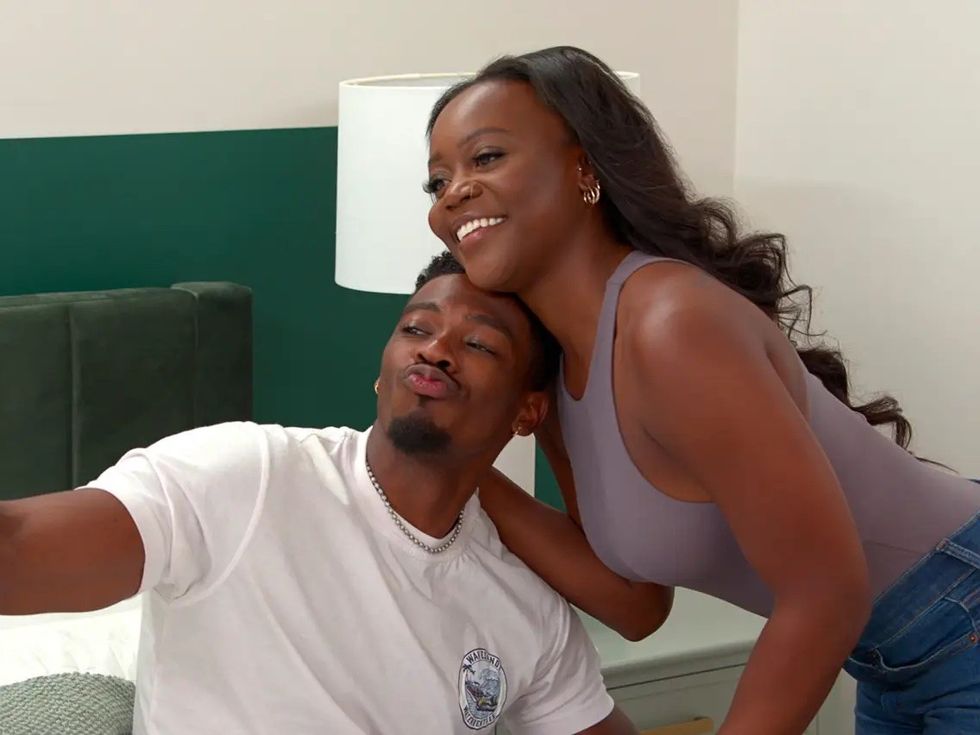
Netflix Love Is Blind season 6 Clay and AD/ Screenshot
Engaging in inner work through therapy is undoubtedly a crucial step toward personal growth and healing, but it doesn’t fix us. It provides us with the opportunity to delve into our past traumas, confront deep-seated insecurities, and develop healthier coping mechanisms. However, despite the insights gained and the progress made within the therapeutic setting, applying this newfound self-awareness to real-life situations, especially in the realm of romantic relationships, can be challenging.
For someone like AD, the journey towards self-discovery is ongoing. I love the way Yung Pueblo puts it: “If the pain was deep, you will have to let it go many times.” While therapy equips her with valuable tools for introspection and self-reflection, it doesn't necessarily guarantee an immediate transformation in her dating behavior or decision-making process because she needs to grieve what she didn’t get from her father and create a new identity for herself.
One of the biggest reasons for this disparity between inner work and practical application lies in the complexity of human emotions and behavior.
Despite understanding the root causes of her attachment issues, AD found herself still drawn to partners who perpetuate these dynamics. This phenomenon often occurs because our emotional responses are deeply ingrained and may override rational thought processes, particularly when it pertains to matters of the heart.
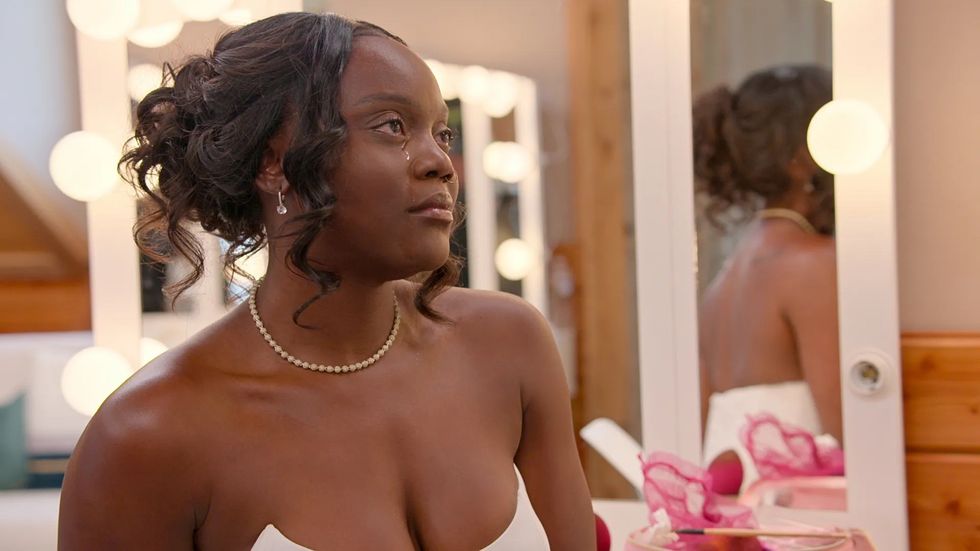
'Love Is Blind' Season 6 Finale AD and Clay's Wedding/ Screenshot
Furthermore, the dynamics of therapy sessions differ vastly from real-life interactions and relationships. In therapy, individuals are in a controlled environment where they can explore their thoughts and emotions without fear of judgment. However, the unpredictability and vulnerability inherent in dating can trigger old wounds and defense mechanisms, making it challenging to maintain the same level of self-awareness and emotional regulation.
Moreover, societal expectations and cultural norms can exert significant pressure on individuals like AD, influencing their perceptions of what constitutes a successful relationship. The desire for validation, societal approval, or the fear of being alone may cloud judgment and lead to compromising on core values or overlooking red flags.
So, how can we bridge the gap between inner work and practical application in our own dating lives?
Firstly, it's essential to acknowledge that growth is a gradual process and setbacks are inevitable. Instead of expecting instant results, we can practice self-compassion and patience while holding ourselves accountable.
Additionally, we can also work on slowing down, setting boundaries, and practicing assertiveness in our interactions with potential partners. Start getting to know people from the inside out. Not just by what they say but by what they do. These two things should always walk hand in hand.
By clearly communicating our needs and values and slowing down on physical intimacy, we can better discern whether a relationship aligns with our values.
Furthermore, seeking support from wise counsel (trusted friends and family), mentors, or even continuing therapy BEFORE things get too serious can provide us with additional perspectives and guidance as we navigate the dating landscape. Having a support network can offer reassurance and validation while also providing accountability in making healthy choices.
Lastly, by staying attuned to our emotions and paying attention to what our intuition is saying, we can make more informed decisions and avoid falling into familiar traps.
Let’s make things inbox official! Sign up for the xoNecole newsletter for daily love, wellness, career, and exclusive content delivered straight to your inbox.
Feature image Netflix Love Is Blind Season 6/ Screenshot



